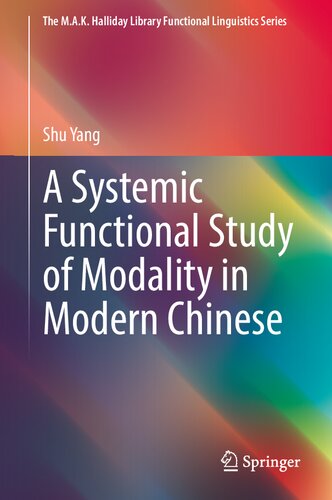

Most ebook files are in PDF format, so you can easily read them using various software such as Foxit Reader or directly on the Google Chrome browser.
Some ebook files are released by publishers in other formats such as .awz, .mobi, .epub, .fb2, etc. You may need to install specific software to read these formats on mobile/PC, such as Calibre.
Please read the tutorial at this link: https://ebookbell.com/faq
We offer FREE conversion to the popular formats you request; however, this may take some time. Therefore, right after payment, please email us, and we will try to provide the service as quickly as possible.
For some exceptional file formats or broken links (if any), please refrain from opening any disputes. Instead, email us first, and we will try to assist within a maximum of 6 hours.
EbookBell Team

4.0
86 reviewsThis book presents a systematic and relatively comprehensive account of the system of MODALITY in Modern Chinese and the functions that realizations of modality serve in the clause and clause complex. Grounded in SFL, the research begins by introducing the system of types of modality in Modern Chinese, investigating the subtypes of modality and their realizations. The study then explores the systems of Orientations that characterize the realization of modalization and modulation in Chinese. After establishing the complete system of modality in Modern Chinese, the research finally examines the functions that realizations of modality serve in the textual structure of the clause and in the clause complex. The study finds that the system of MODALITY is an important interpersonal clause system at the lexicogrammatical stratum of Chinese. There are two distinct types of modality in Chinese: modalization and modulation. Modalization concerns the assessment of probability of the proposition; modulation is concerned with the assessment of the proposal in terms of obligation, inclination, and ability. The systems of ORIENTATIONS make a basic distinction between subjective and objective modality, and between the explicit and implicit realizations.
The research also reveals that in the thematic structure of the clause, realizations of modality can serve as the interpersonal Theme in the clause, in the information structure of the clause, realizations of modality can function as the unmarked information focus of the clause or introduce the marked information focus, and in the clause complex, realizations of modality can encode modal meanings and simultaneously construct clauses into a clause complex.